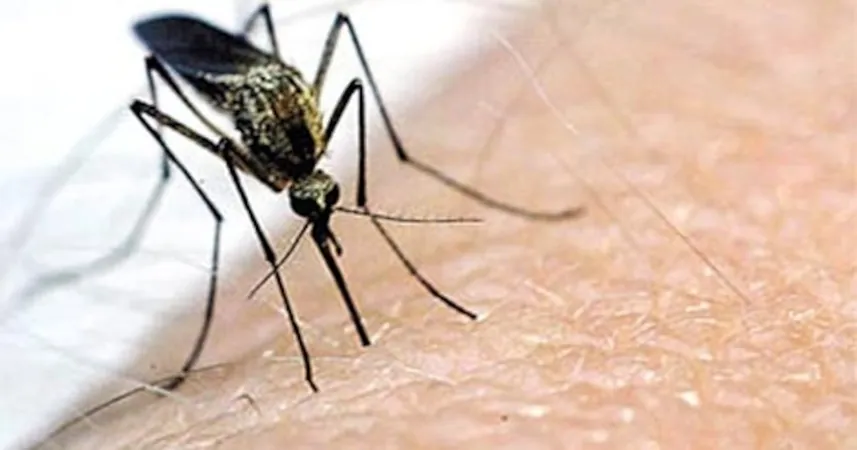
New Research Unveils Shocking Risks of THC on Female Fertility!
2025-09-16
Author: Liam
Groundbreaking Study Reveals THC's Impact on Female Reproductive Health
A startling new study has just been published, raising alarming concerns about the effects of cannabis on women's fertility. Researchers dive deep into how tetrahydrocannabinol (THC), the active ingredient in marijuana, interacts with the human oocyte, the precursor to eggs, and the results are troubling.
What the Research Found
Conducted through both clinical and in vitro analyses, the study establishes that THC and its metabolites negatively influence female fertility. Previous research hinted that THC could infiltrate the ovarian follicle, but this study focuses specifically on its impact on oocytes—an area that hasn't been well-studied until now. Published in *Nature Communications* in September 2025, the study titled "Cannabis Impacts Female Fertility as Evidenced by an In Vitro Investigation and a Case-Control Study" puts a spotlight on this pressing issue.
Case-Control Study Surfaces Disturbing Findings
In a retrospective investigation involving 1,059 follicular fluid samples from women undergoing in vitro fertilization (IVF), researchers uncovered eye-opening correlations: those with THC presence in their follicular fluid showed significantly lower rates of embryo eligibility compared to their counterparts without THC. Shockingly, 62 of the samples tested positive for THC metabolites, marking a 6% positivity rate.
The researchers also highlighted that THC was linked to oocyte maturation, yet paradoxically, higher THC levels correlated with reduced embryo viability. This raises serious questions about the safety of cannabis for aspiring mothers.
How THC Disrupts Oocyte Development
In an additional arm of the study, oocytes were treated with THC concentrations reflective of those found in IVF patients. A control group was included for comparison, leading to unsettling discoveries: THC exposure sparked errors in chromosome segregation and irregularities in cellular structure. While a non-significant increase in maturation rate was noted, the ramifications could be profound.
Limitations and Vital Considerations
Despite its compelling findings, the study does face limitations. It didn't account for the consumption habits of participants or their ages—both crucial for understanding oocyte health. Additionally, the presence of other substances in the follicular fluid was not analyzed, leaving gaps in the comprehensive understanding of cannabis's impact.
What Does This Mean for Patients?
The conclusions are stark: there may be significant risks associated with THC consumption for women pursuing IVF. Researchers are calling for a shift in public health policies to ensure that women receive adequate education regarding the potential dangers of cannabis use during fertility treatments.
As this new evidence emerges, it becomes critically important for health care providers to counsel patients effectively about the implications of cannabis consumption on reproductive health. Ignoring these findings could endanger the very hopes and dreams of many looking to expand their families.









 Brasil (PT)
Brasil (PT)
 Canada (EN)
Canada (EN)
 Chile (ES)
Chile (ES)
 Česko (CS)
Česko (CS)
 대한민국 (KO)
대한민국 (KO)
 España (ES)
España (ES)
 France (FR)
France (FR)
 Hong Kong (EN)
Hong Kong (EN)
 Italia (IT)
Italia (IT)
 日本 (JA)
日本 (JA)
 Magyarország (HU)
Magyarország (HU)
 Norge (NO)
Norge (NO)
 Polska (PL)
Polska (PL)
 Schweiz (DE)
Schweiz (DE)
 Singapore (EN)
Singapore (EN)
 Sverige (SV)
Sverige (SV)
 Suomi (FI)
Suomi (FI)
 Türkiye (TR)
Türkiye (TR)
 الإمارات العربية المتحدة (AR)
الإمارات العربية المتحدة (AR)